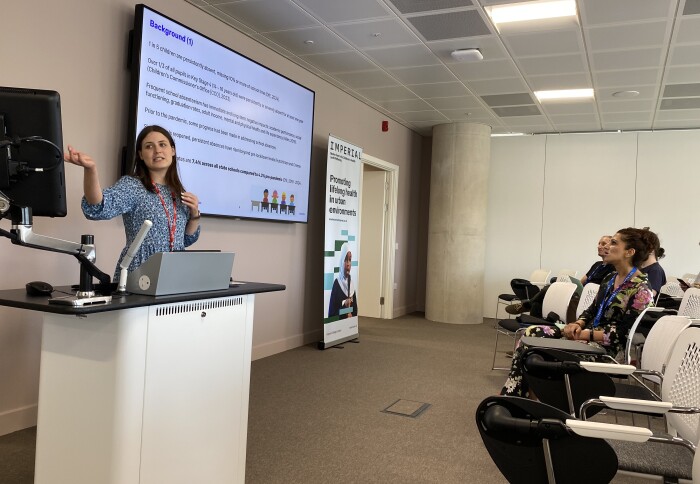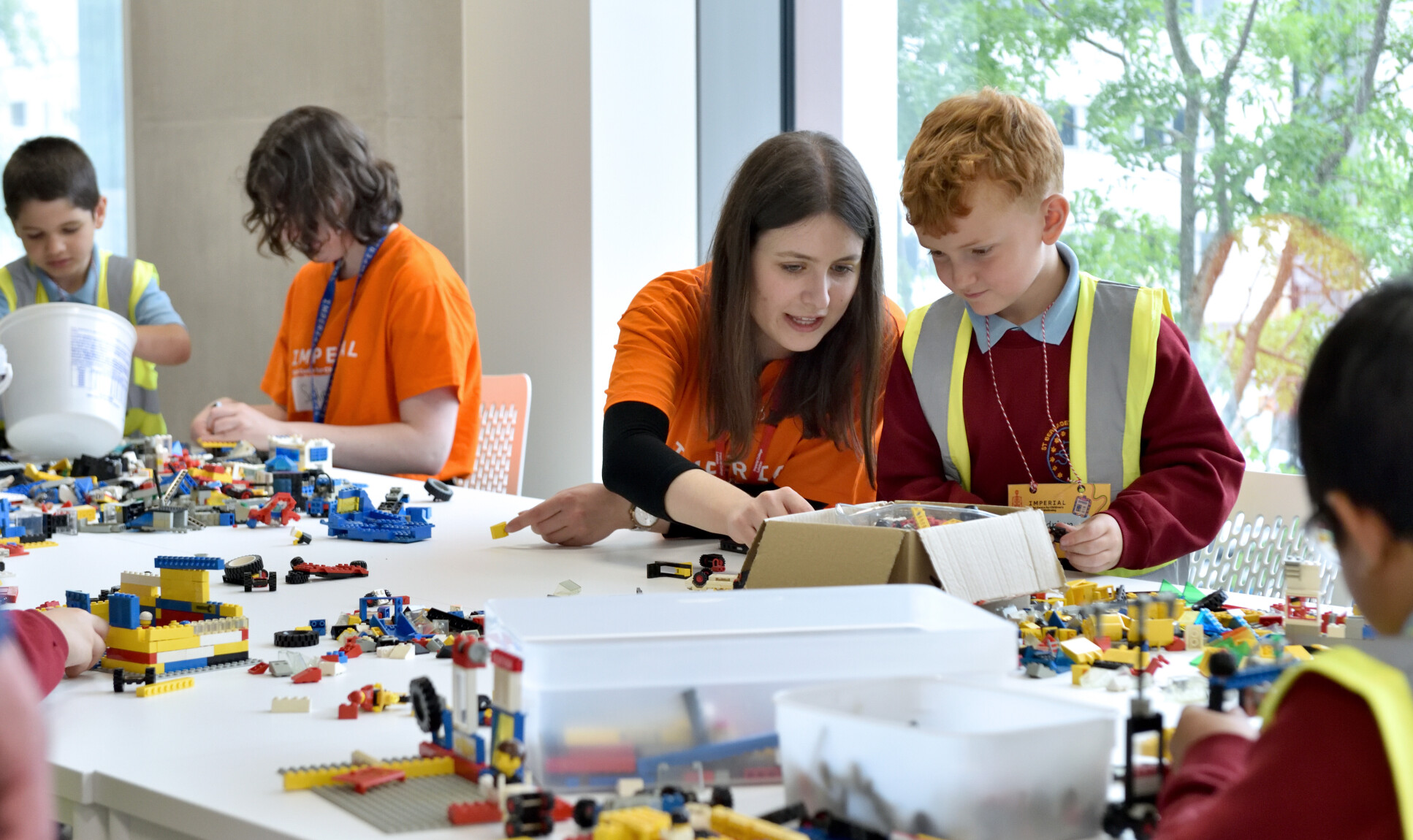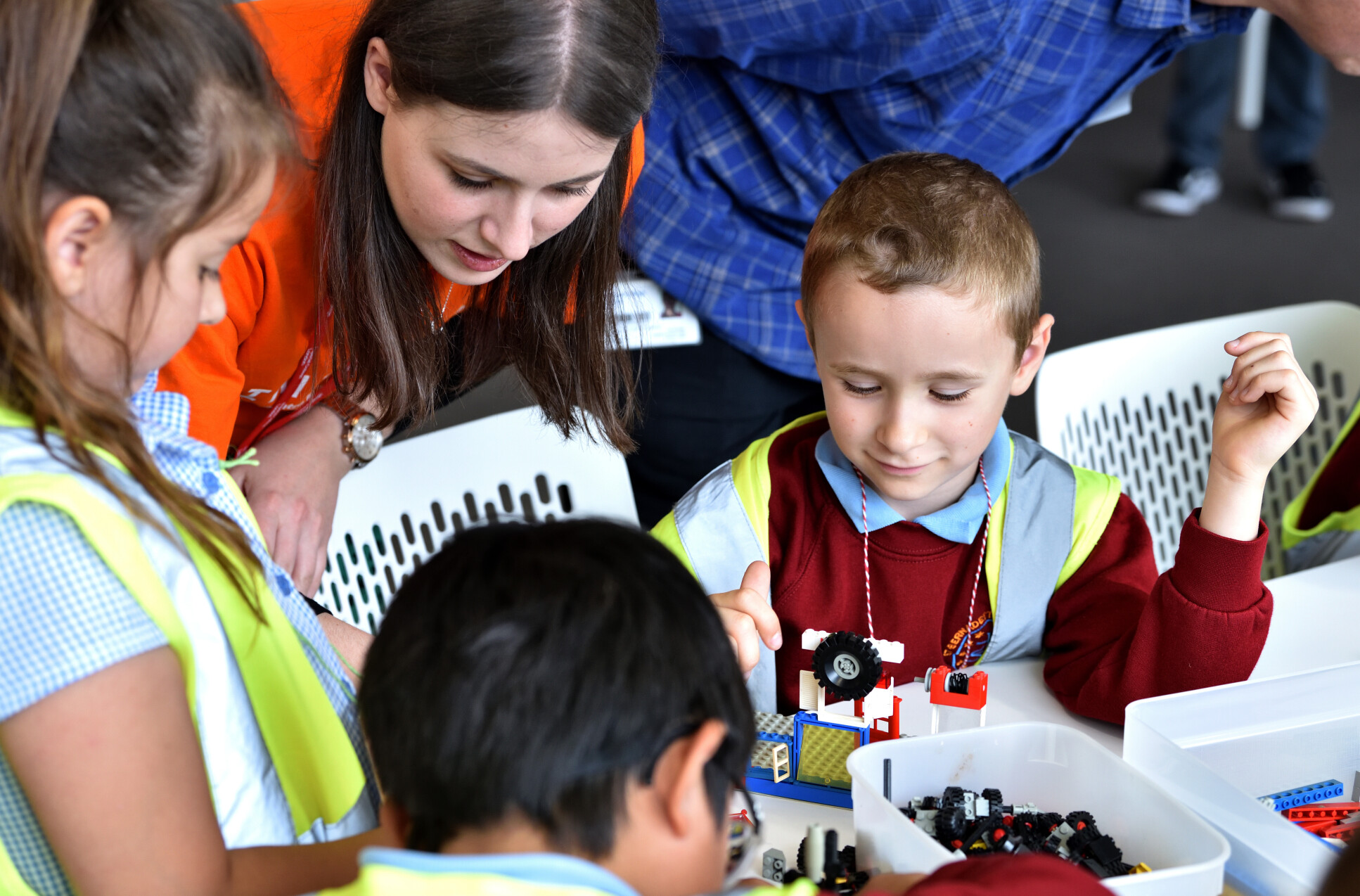Mohn Centre Blog: Shira Neville, NIHR SPHR intern

Shira Neville shares her experiences of taking part in an 8 week NIHR SPHR sponsored internship at the Mohn Centre.
This summer the Mohn Centre welcomed Shira Neville who has been carrying out an 8-week NIHR SPHR-sponsored internship on the link between school absence and health. This aligns to the Mohn Centre's approach of taking a holistic view to child health, recognising the complexities involved when researching education, health and school attendance.
Shira is a third-year biological sciences student at UCL and is looking forward to beginning her master’s. She is passionate about the intersection of science and public policy and is particularly interested in children’s mental health and how policy interventions can positively impact their wellbeing.
Shira is an experienced youth worker, where, having spent time on the national executive committee of a youth movement, she organises and leads camps and weekly learning programmes. Shira works as a youth director where she acts as a bridge between children, young people and adults, organising sessions and classes.
Shira is also a student representative for Jnetics, a charity dedicated to improving the prevention and diagnosis of Jewish genetic disorders where she educates students on the importance of genetic testing. Her combination of youth work, mentoring and teaching in schools has enhanced her understanding of the unique hurdles children and young people face.
As the pandemic era drew to a close, the excitement was palpable. On the 7th of March 2021, Boris Johnson made the announcement we had all been waiting for: schools were to re-open. Worksheets were printed, pens were bought, desks were laid out, and lessons were prepared. Teachers and parents were brimming with excitement. Around the country, school bells chimed signalling the return to the normal we had all longed for. However, one thing was missing: the students. A new normal - except not so normal after all. This marked the beginning of a new pandemic: the missing children.
My internship: School absence and health
My internship looked at the relationship between school absence and mental health with a focus on public policy. A perfect topic for me, looking at my previous experience:
Science and engagement
As a biology student, I have always had a passion for science. Learning how and why the body and mind work fascinates me. Yet, I always felt as though there was an essential element missing in my scientific research: the role of the community. For research to have a meaningful impact, we must talk to the people whom our research influences. This is how I discovered the world of public health; where science and new discoveries are transformed into actionable changes, governmental policies, and ways to improve lives everywhere.
Education
My experience in education has taught me that the school's role is to support children and young people to develop into well-rounded individuals. This is not only through exam results but also developing skills such as play, friendship, boundaries and mental well-being. It is clear to see the difference in maturity and life skills of children who missed school because of the pandemic compared to those who did not, and the negative effects of school absence on a child’s health and wellbeing.
Communication
It is one thing to know the science, but another to bring people with you to make a tangible difference. Through my contributions to a systematic review with Dr Mahmood Ahmad on rheumatic heart disease and its potential treatments, I learnt about the power of words and research to suggest exciting innovations and how treating diseases is more nuanced than answering the simple question of “what works best?”. Many factors come into play such as socioeconomic status and the reliability of information recorded, making investigating equitable solutions to health inequalities an aim of my internship.
Armed with my experience in education, science, and communication, and a desire to look at a wider view of drivers of health and well-being, I searched for internships to help me pursue this passion and gain practical experience in public health. When I saw the NIHR SPHR internship, I knew it would complement my skills and experience perfectly so of course, I had to apply. I was fortunate enough to be successful! Before I began my internship, I sat with my supervisor to discuss my project. We decided to utilise my educational and community outreach experience and develop a project previously suggested by the research team. I particularly valued the chance to craft my internship to my experience and research aims of NIHR SPHR and work with experts in the field such as Dr Dougal Hargreaves and Dr Steve Hope.
I was thrilled to be working on: what actionable changes are successful in increasing attendance?
Why are children absent?
School absence rates in England have doubled in the last 5 years, a significant increase since the pandemic. Currently, 1 in 5 children or young people are persistently absent, missing 10% or more of school time. This is thought to be driven by a complex interaction between a range of factors. Some groups of children are more likely to be absent than others. This includes those with special educational needs and disabilities, mental or physical health problems, those in social care and those receiving free school meals or living in poverty. We must work to tackle issues underlying non-attendance to ensure every child goes to school.
What I accomplished
Through my preliminary investigation of the published and grey literature, I identified that a holistic approach to targeting school absenteeism is the most effective, where students with chronic absenteeism receive support from a combination of stakeholders in the education, health and social care fields. As a team, we decided to bring these diverse partners together to discuss the perspectives on the ground. I took the lead on this project and researched, identified and contacted a range of stakeholders whom I invited to the workshop. I organised the workshop for the 18th of July, where 5 teachers, 6 parents 9 health care professionals, including school nurses, Child Adolescent and Mental Health Services, paediatricians, and 6 representatives from the local council and met police attended. I executed this by building connections with these stakeholders to create a space where they felt they could speak freely and share their experiences. During the workshop, we ran sessions to understand their views on why school absence is a growing issue and what we can do to solve this problem. One session included stakeholders identifying from their perspective a factor or change that they believed could improve children’s attendance.
Findings from the workshop
The workshop was a resounding success! It was fascinating to witness the complex relationship between the stakeholders and the power of bringing these voices together. I identified themes for further investigation in my project.
1. Communication
Stakeholders emphasised that no one person can bring a child back to school. The local authority, paediatricians, Children and Adolescent Mental Health Services, teachers, and parents, all have an essential role to play in this process. Particularly, education and health care services must work together to provide more seamless solutions for children and young people who are chronically absent. This is echoed by policymakers who have published guidance for parents on how they can receive the right support from schools and the local authority to help their children attend school. If one element is missing in that chain of communication - it all collapses. It is important to not only build this chain but also maintain it throughout a child’s school career.
2. No child is the same
Imagine a world where you, your friends, and your family had to do the same job day in, day out! On top of that, you all must wear the same stifling blazer, tie and shirt (must be tucked in) emblazoned with a fluorescent logo. The stakeholders explained that this is what school feels like for some children. The same teaching method may help one child follow their dreams but leave another feeling excluded and left behind. We live in a flexible world, yet schools can be inflexible. We need to address this by creating alternative education plans for those who cannot cope with normal schooling methods.
3. Child-centred approach
We must work to understand each child holistically including their unique needs, experiences, perspectives and family life. This approach was reinforced by a conference I attended on school absence and mental health by the Nuffield Foundation on the 2nd of July, where we heard from some of the leading researchers and policymakers on this topic, discussing the importance of understanding the complex reasons why a child may be absent from school so that we can help them in the most effective way possible.
4. Attendance incentives
Whether it’s earning money, getting a break from the kids, or a love of the job you do …we all need incentives to get out of the house in the morning - and so do children and young people. The stakeholders suggested that this could be through fun activities such as extra enrichment or sports.
Next steps:
We have a responsibility to use our findings to suggest actionable change. To fulfil this, I am writing a report to be published, including suggested interventions to increase school attendance.
Through the workshop, we identified some key questions for further investigation which I will explore in report:
There is a clear need for a holistic multi-agency approach, how can paediatricians best support or drive this?
How can we support, evaluate and spread effective practice to increase school attendance?
What I’ve learnt:
Take advantage of being at this stage in my life.
SPHR is a vital organisation, aiming to increase the evidence base for inclusive, equitable and cost-effective public health practice. However, one thing I believe they can improve on is communicating with young people. I have come to my internship with a unique perspective, with my feet in both worlds. As a biology student, I understand the intricate science underlying the issues young people face daily. As a student - and still being a young person myself! - I can grasp these setbacks on a personal level. Attending the Hammersmith and Fulham youth council meeting during the internship taught me the importance of those working in public health to not just speak about young people, but to speak to them, not to just use them as a reflection of their research, but to include them in the research.
Setbacks are not really setbacks, just an alternative way of learning.
Cheesy, I know, but trying (and failing sometimes) to write a review on my project taught me many lessons. The plan for my review was chopped and changed so many times - it would be easy to regret that time spent. Yet, I gained countless skills in academic writing and made professional connections across the field. My review may not be anything like I initially thought it would turn out, but I learnt so much on the way.

Working hand-in-hand with the public
Public policy and engagement cannot be done without engagement! One of my favourite parts of my internship was engaging with the public in the local borough and beyond. My internship was based in the new Mohn Centre for Children’s Health and Wellbeing, Imperial College London, which aspires to create a community-led, transdisciplinary research centre addressing childhood physical and mental health challenges and inequalities. During my internship I assisted with its launch where we hosted a week of activities. This included welcoming over fifty year 2 children from a local primary school to teach them about science and research. We ran a multitude of interactive sessions including the one I led: - making structures out of Lego of places where children feel healthy and safe. I also hosted an engagement stall during the launch week, explaining our research to everyone from university students to professors, helping me to collate my knowledge, making sure I was clear on the facts and teaching me how to explain science to anyone, no matter their age.
Communication is everything!
During my internship, I understood the role of communication on a new level. At an SPHR away morning with the project I was working on, I learnt the importance of discussion between teams across NIHR and the power of sharing research to have a bigger impact. Attending and presenting at smaller team meetings taught me how essential it is for a team to know each other’s research to allow for collaboration, especially in a world of hybrid working.
Say yes to opportunities
I presented our findings on the topic of school absence and mental health at the monthly “Mohn Mingle”, a networking and research dissemination event, alongside an Education Psychologist at Hammersmith and Fulham Council. We then opened up to the audience to get their suggestions for future directions for research. This allowed me to discuss research findings with academics and colleagues across the university, form interdisciplinary partnerships and receive feedback from a range of professionals to fine-tune my work and its future directions.
Finally, I learnt to always follow my passion
When I left school to begin my biology degree, I was filled with nervous excitement. Excited to learn more about a subject I loved but nervous that I wasn’t doing a vocational degree like some of my friends - where would I end up in three years - yes, with a good degree, but with no future plans?
Three years later I can safely say that I made the right decision. I picked the best modules for my degree and in my spare time, I continued my youth work, leadership training and teaching. I filled my time with things I love and now, I am looking forward to completing my master's next year followed by a career in public health, focusing not only on the research but the people it affects. I want to use the skills I gained at NIHR to do a master's in public health followed by a career looking at how public policies affect children and young people and how I can positively impact this.

Article supporters
Article text (excluding photos or graphics) © Imperial College London.
Photos and graphics subject to third party copyright used with permission or © Imperial College London.
Reporter
Charlotte Gredal
School of Public Health